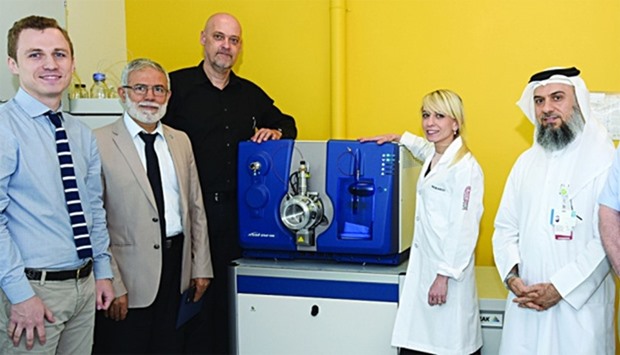“Testing for diabetes using saliva is far less invasive and significantly improves the screening process for many patients. This is especially true for children who may be reluctant to have blood taken,” said Prof Abdul-Badi Abou-Samra, chairman of Internal Medicine at HMC, director of the Qatar Metabolic Institute and one of the study investigators.
“The development of new sensitive screening tools is very important in the fight against diabetes. It could help identify undiagnosed diabetic and prediabetic patients, resulting in improved management and reduced complications,” he explained.
The collaborative team of researchers from HMC, led by Dr. Ramzi Mohamed, director of the interim Translational Research Institute (iTRI) and from WCM-Q, led by Dr. Karsten Suhre, professor of physiology and biophysics and director of Bioinformatics Core, is continuing the project to assess the viablility of non-invasive monitoring and screening of diabetes, and a direct translation of the initial findings into the clinics is yet to be seen.
The recent study, published in the Journal of Translational Medicine, demonstrated that saliva can be used for the new test. However, the study showed that saliva contains another molecule that interferes with the readouts. Therefore, current efforts are focused on optimising the test by introducing an enzymatic reaction to remove the interference and enable the direct use of patient’s saliva for the test.
This study was supported by HMC’s Medical Research Centre. Dr. Ibrahim Janahi, executive director of the centre and professor of paediatrics at WCM-Q, recalled it was "a truly collaborative and productive project. It illustrates how an excellent research outcome can derive from the partnership between HMC and WCM-Q.”
Dr. Suhre added: “Collaborating closely with HMC gives us the opportunity to translate our research from the laboratory to the clinic where it can be of practical use. Translational research of this type is a key priority for Qatar and we are very happy to be working with our colleagues at HMC.”
Dr. Anna Halama from WCM-Q and Dr. Michal Kulinski from the iTRI, who both conducted the research, are now working on the next important project - implementation of the first targeted metabolomics platform in Qatar. Initial validation steps were already accomplished. This tool is allowing for quantification of over 160 small molecules by using Biocrates p150 Kit without sending samples abroad.

